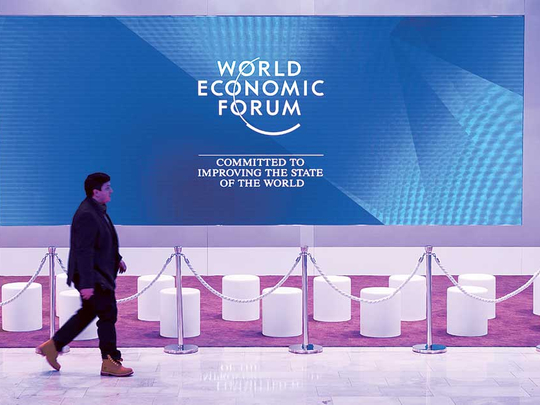
The challenge of building new global and inclusive leadership will be the dominant theme of the World Economic Forum’s Annual Meeting in Davos this year. The meeting comes at time when there is an excess of leadership but all of it is far too nationalistic to benefit the global structures that are looking increasingly weak, as the rhetoric of Russian President Vladimir Putin and US President-elect Donald Trump makes all too clear, with Chinese President Xi Jinping remaining largely uncommitted.
Which is why the opening address by Xi will be a key test of China’s commitment to global governance. He will be accompanied by the largest delegation of Chinese officials to Davos since the country first participated in an Annual Meeting in 1979. Another important first time visitor will be Antonio Guterres, the new Secretary-General of the United Nations, fresh from his continuing talks on Cyprus.
These two are some of the most prominent of the 50 heads of state and government, who are among more than 3,000 participants from more than 100 countries, including 1,200 CEOs, the biggest such gathering ever. There will also be 300 public figures and many participants from media, academia, and NGOs, like the unexpected face of Raed Al Saleh, the founder of Syria’s White Helmets volunteer rescue group who have been filmed so many times as they rescued people in the middle of the terrible siege of east Aleppo.
As the debates pass over the world’s current hot spots, the underlying theme of how the institutions of global governance have not kept up with a genuinely multi-polar world will run throughout the four-day conference. The World Economic Forum is always ready with analysis and answers, and Professor Klaus Schwab, Executive Chairman and Founder of the World Economic Forum warns that countries that interact on the basis of shared interests rather than shared values, will only be able to cooperate on a very limited level. In his initial thoughts for the Annual Meeting, he makes a plea for a more principled basis for international relations that can withstand and improve on the more transactional basis that is becoming far too common.
The World Economic Forum sees four key leadership challenges for 2017: strengthening global collaboration, revitalising economic growth, reforming capitalism and preparing for the Fourth Industrial Revolution which is how the digital age will transform the way we live and work.
First, global collaboration is essential for a dynamic, inclusive multi-stakeholder global-governance system. Today’s economic, technological, environmental, and social challenges can be addressed only through global public-private collaboration; but the current framework for international cooperation was designed for the post-war era, when nation-states were the key actors.
At the same time, geopolitical shifts have made today’s world truly multipolar. As new global players bring new ideas about how to shape national systems and the international order, the existing order is becoming more fragile.
Second, the restoration of global economic growth is important. Permanently diminished growth translates into permanently lower living standards, and even without today’s technologically driven structural unemployment, the global economy would have to create billions of jobs to accommodate a growing population, which is forecast to reach 9.7 billion by 2050, from 7.4 billion today. This is why the World Economic Forum is so clear that 2017 has to be a year in which social inclusion and youth unemployment become critical global and national issues.
Third, market capitalism needs to be reformed so that there is a new compact between business and society. Free markets and globalisation may have improved living standards and lifted people out of poverty for decades, but their structural flaws — myopic short-termism, increasing wealth inequality, and cronyism — have fuelled the dangerous political backlash of recent years, in turn highlighting the need to create permanent structures for balancing economic incentives with social well-being.
Fourthly, everyone will have to come to grips with the Fourth Industrial Revolution, which is redefining entire industries and creating new ones from scratch, owing to groundbreaking advances in artificial intelligence, robotics, the internet of Things, self-driving vehicles, 3D-printing, nanotechnology, biotechnology, and quantum computing. These technologies have only begun to show their full potential but they are already dividing societies into those who embrace change and those who do not, which threatens our well-being in ways that will have to be addressed.
A fifth challenge facing global leadership is how to address the widespread identity crisis caused by millions of people losing confidence in institutions as globalisation has made the world smaller but more complex. Many people now fear for their future, and they are looking for shared but distinct beliefs that can furnish a sense of purpose and continuity.
This process of finding identity is not a rational process, and is deeply emotional. Politicians attracted votes by offering a sense of nostalgia and not by addressing needs or presenting long-term visions, which is why populists made such big gains in 2016 by fostering reactionary and extreme beliefs. The challenge facing responsible leaders is to must recognise people’s fears and anger as legitimate, while providing inspiration and constructive plans for building a better future.












